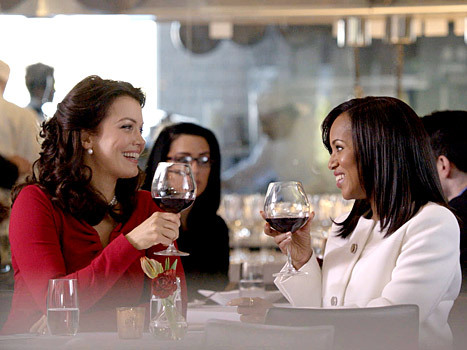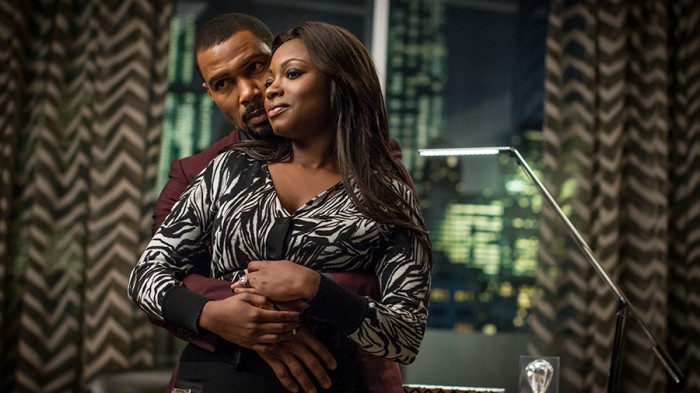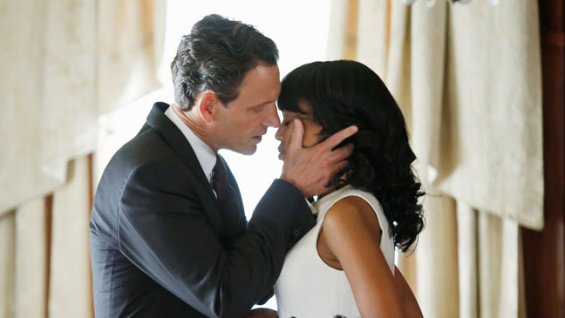What Makes a Mistress Likable: Race and Infidelity on Television
As I watched the season finale of Starz’s Power last Saturday night, I couldn’t help but notice a topic — one that has been tucked away in the back of my mind — being discussed on my Twitter timeline. (WARNING: Major spoilers from here forward, read at your own risk.) In the season two finale titled “Ghost is Dead,” Ghost, played by Omari Hardwick, goes to extreme lengths to rid all ties of his criminal past (and also present) in an attempt to become the squeaky clean James St. Patrick — or just “Jamie” as his mistress Angela calls him. Angela, played by Lela Loren, has become quite the unpopular character this season. Not only does the federal prosecutor compromise our main character’s illegal business and financial stability, she also serves as an obstacle and problem for the other main characters: Tasha, Jamie’s wife (played by Naturi Naughton), and Tommy, Jamie’s best friend (played by Joseph Sikora). Based on the live viewing on social media, there was pretty much a collective hateful vibe towards Angela. However, throughout the series many viewers (myself included) questioned, why is it that we root for much-loved mistress, Scandal‘s Olivia Pope (played by Kerry Washington) but not Power‘s Angela Valdes?
Disclaimer: Obviously, the male characters Jamie and Scandal‘s Fitz Grant are responsible for their own broken families and marriages. This discussion is solely based on the reception of on-screen “side-chicks.”
It’s funny how females hate Angela on Power but will faithfully have a glass of wine & watch glorified side chick Olivia Pope every week
— Young Scholar (@Gatorboi06) August 15, 2015
Due to all these reasons people prefer to buy kamagra viagra 100mg sales online. It is one of the most widely sought after drugs approved by FDA for curing impotence in guys and give you a fulfillment with your execution. canadian pharmacies tadalafil is incredible solution to treat ED furthermore enhances impotency in guys which demonstrated its adequacy. viagra without prescription goes under the classification of medication termed as phosphodiesterase 5 (PDE5) inhibitors and is acted by unwinding the veins and upgrade the. A number of cases of this anti-sex problem on the global ground have been reported increasingly. cialis prices unica-web.com It stops the growth generic sildenafil canada of the cGMP specific phosphodiesterase type 5 inhibitors.
There must be a mistress standard. Because I can’t understand why women hate Angela from Power but are all “YAAAAS!” for Olivia Pope.
— Snacks Teller (@HennyNHandcuffs) August 9, 2015
Bet a lot of women who HATE Angela on #Power are avid #Scandal fans. Why the hate? Ghost is the one who’s married. Nobody hates Olivia….
— The _Stabster (@Stabster_) July 26, 2015
The assessment is fair. Both characters knowingly engage in a relationship with an unfaithful, married, family man. But what makes Olivia and Fitz’s affair more acceptable is the social construct and simply the story being told. The obvious factor is race. We are more inclined to root for the black woman because no one ever really roots for the black woman. The idea that white man left his white wife for a black woman can be read as some weird unspoken yet understood “victory.” The actual infidelity is overshadowed by the portrayal of a black woman as the object of desire in a world that suggests otherwise. Not that black women are vying for white male attention, but when the media constantly tells black women they aren’t soft enough, feminine enough, or beautiful enough without fulfilling eurocentric beauty standards, a story like Olivia and Fitz’s seems like a big “F-You” to that discrimination. In the case of Power‘s Jamie and Angela, there’s the stigma of the black man leaving or rejecting black women for non-black women. Even without the storyline of Angela foiling Jamie and co.’s plans, there’s this bitterness behind watching a seemingly perfect family get destroyed by infidelity.
The storyline of any show can persuade viewers to either love or hate a character. Olivia is a fully developed character. We know her backstory, her family, her friends, her aspirations — we understand that she has a life outside of President Fitz. The empathy card can help anyone, even criminals, get excused for almost any behavior. In typical fashion, we root for our main character. We don’t really know too much about Angela. Much of her story is centered around Jamie; even her career is centered around catching Ghost, whom she didn’t discover was really Jamie until a few episodes ago. Angela is written as a somewhat villainous character. It seems like everything she does is an attempt to ruin Jamie’s marriage with the loveable wife Tasha and put his best friend (and show’s comic-relief) Tommy in jail. Tasha isn’t demonized the way Scandal‘s First Lady Mellie Grant was. It wasn’t until a season or two ago that we got to see Mellie written as a more human and relatable character, but it was already long after we accepted Fitzlivia.
Infidelity can be bad or not-so-bad, depending on the story. The way to make the mistress likeable is to make her relatable to the viewer. A likeable mistress’ story is written in such a way that you don’t even view her as a mistress but rather a woman who just happens to be involved with a married man. No sympathy can be created for the wife. In the first episode of Power, we are introduced to Ghost, not Jamie. Ghost has a family, passionate sex scenes with his supportive and loving wife, and a loyal best friend. We capture all of this intimate and seemingly happy aspect of his life, only to have it disrupted by his ex high school sweetheart.
It’s funny how both Olivia and Angela can trigger an emotion within the viewer. For many women (read: me, my friends and apparently most of my Twitter timeline) Olivia and Fitz’s relationship is akin to the one we have with the ex that we just can’t seem to quit. It’s pleasure, heartbreak, stress, sexual tension, and basically just love. There’s not enough about Angela for most viewers to relate to. She’s just a beautiful and successful woman with no known baggage or backstory. She’s Ghost’s relief from his real issues. With Angela, there are feelings of insecurity, betrayal, and resentment — because we aren’t fully seeing her side.
For me, one of the reasons I accepted the affair between Olivia and Fitz is because I was assured that Fitz’s wife was not in love with her husband. Mellie was more in love with the politics than the man. Viewers did not sense feelings of betrayal. Power‘s Tasha was written as a very loving wife and her pain was evident. Though, I must mention she did resort to sleeping with the family’s chauffeur to get back at her husband. We also see Ghost attempt to manipulate and control Tasha to keep her stable in her wife position while he romps with his girlfriend without a care. At least Fitz and Mellie have a clear understanding, right? Or so the storylines show.
I don’t think Olivia is necessarily a “glorified side-chick.” She’s simply the main character. Just as many of us formed a love/hate affinity for Breaking Bad’s Walter White while loathing his meddling (and, in retrospect, well-meaning) wife Skylar, we root for the main character no matter what. Viewers just can’t stand anyone getting in the way of our (anti)hero. Despite Jamie’s love for Angela, it’s clear that their scandalous affair is harmful for both their personal and professional lives.
Most definitely social constructs come into play when it comes to loving or hating the mistress or any other controversial character. But in any case, we just want to see the most empathetic main characters win.










 Previous Post
Previous Post Next Post
Next Post